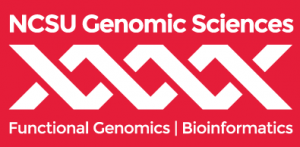About
The 2020 Genomic Sciences & Biomathematics Symposium is a continuation of the previously held Genomic Sciences Retreat. By providing a venue for student research in both the Genomic Sciences graduate program and Biomathematics graduate program, we hope to inspire interdisciplinary research and collaboration. Students will present their research during the two-day event and have opportunities to open new discussions with faculty and peers.
Genomic Sciences

Bioinformatics
Handling and analyzing large amounts of data continues to be an urgent need in genomic science. Bioinformatics emerged in response to this need. The new field includes methods to analyze extremely large data sets of genomic information such as DNA sequences and expression from DNA microassays. Students selecting Bioinformatics will be concerned both with the management of genomic data and with the means for drawing inferences from these. They will learn to search for pattern and meaning in genomic data and will develop new statistical methods of analysis.
Academic preparation will focus on all quantitative aspects of genomic science—mathematical, statistical and computational analysis.
Theoretical research will focus on applications of genomic data in areas such as human identification for forensic and parentage issues, varietal protection of plants, detection of genes affecting disease and those affecting economic traits in plants and animals, prediction and determination of the structure of proteins, gene discovery, sequence alignment, characterization of functional and structural domains in DNA sequences, reconstruction of the evolutionary history of modern species, characterization of the structure of human and other populations, quantification of the extent of genetic diversity in natural and domesticated species.
Bioinformatics Research Center
Functional Genomics
Functional Genomics encompasses gene discovery, gene expression, protein and nucleic acid structure and function, gene and gene product interactions, and genomic approaches to breeding and comparative studies relevant to ecology and evolutionary biology. Students selecting Functional Genomics will focus on one or more of these areas.
Academic preparation will start with a general background in Genomic Sciences including classes in Bioinformatics, Genetics, Biochemistry and Statistics. A wide variety of advanced courses are offered and will be chosen depending on the specific focus of the student.
Biomathematics

Biomathematics is the use of mathematical models to help understand phenomena in biology. Within the biomathematics program at N.C. State, faculty and student research areas include immunology, biomechanics, neurobiology, wildlife and agricultural management, conservation biology, population genetics and ecology, environmental toxicology, and pharmacokinetics. Research on specific applications is complemented by fundamental work on mathematical, statistical, and computational methods for fitting models to data and deriving their properties.
Coursework in the Biomathematics graduate program includes theory and methods of biological modeling, mathematical and statistical methods, and applications to substantive problems in biology. The degree programs are flexible, to accommodate students with backgrounds in the biological, mathematical, or physical sciences and with diverse career interests.
